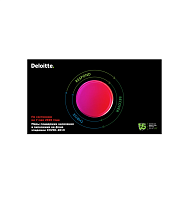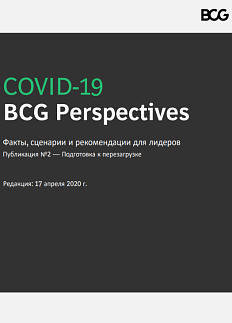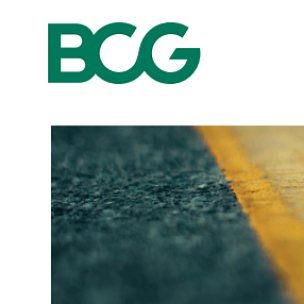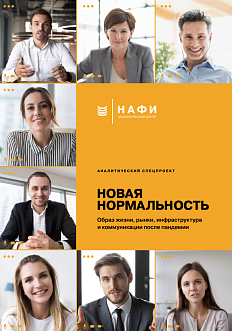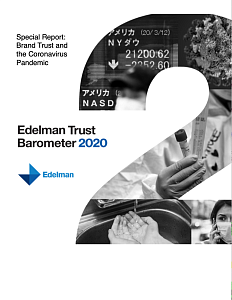Deloitte has published an overview of principal measures introduced in Russia to support the national economy.
This publication is regularly updated. The present version in current as of 7 May 2020.
The Roscongress Foundation presents the salient points of the publication accompanied by fragments of broadcasts of relevant panel discussions from the business programme of international events held by the Roscongress Foundation.
Employment support is the central issue in the set of social support measures
Bonuses will be paid to medical personnel helping coronavirus patients. PIT exempt bonuses will be paid for the period from April to June 2020. Furthermore, such medical personnel will be covered by mandatory insurance policies similar to those of the Russian Armed Forces staff.
Late payment interest for overdue/underpaid utility bills and building renovation contributions will not be charged until 1 January 2021.
Tourists will be refunded for trips cancelled due to travel restrictions. Refunds will be financed from tour operators’ statutory reserve deposits as resolved by the Government.
Provisions on remote work can be included in the Russian Labour Code. The initiative will be discussed by the Russian Trilateral Commission on the Regulation of Social and Labour Relations.
Ministry of Labour prepares draft of employment support measures for the pandemic period. The key measures are:
• to provide temporary employment with the same employer to employees under threat of termination;
• to subsidise payroll costs for at least minimum wage amount per employee;
• to create community service jobs for terminated workers;
• to provide the unemployed with professional development opportunities;
• to make one-off payments of RUB 60,000 to terminated workers who have started own business.
Rules for federal and municipal control (oversight) will be radically changed to cut administrative costs
Special rules have been set for 2020 for federal and municipal control (oversight):
• for SMEs and non-profits, only ad hoc checks will be permitted, mostly to investigate or prevent damage/threats to public health and safety;
• for other organisations, scheduled checks will be conducted only if their activities/facilities belong to the High or Very High risk category or Hazard Class 1;
• no new field customs audits will be scheduled/conducted (with minor exceptions), earlier scheduled audits will be suspended.
Only remote audits are permitted, including via audio/video conferencing. Site visits will be restricted to exceptional cases.
The Government will be authorised to introduce urgent measures to counter COVID-19 spread:
• to introduce high alert or emergency regimes in the Russian Federation or any parts of it;
• to set mandatory rules for such regimes;
• in an emergency and/or threat of pandemic, to restrict wholesale/retail sales of medical products for up to 90 days;
• to set a special procedure for registration and control over production and sales of medicines and medical goods, intended for use during warfare, emergencies, and prevention and treatment of deceases posing threat to public health;
• to impose a moratorium on bankruptcy filings;
• to change the deadlines for making contributions to travel operators’ statutory reserve deposits and regulate their use for payment of compensations to tourists;
• to modify the rules of federal public oversight/control activities and licensing.
Tourism and transport receive the greatest number of sectoral support measures
Rules for subsidising distressed tour operators have been approved. The subsidies will be aimed at compensating the following costs:
• refunds for trips cancelled between 24 January and 30 March 2020;
• repatriation of stranded tourists from COVID-19 affected countries within two weeks after restrictions roll out in a particular country.
Payments will be made under an agreement with the Federal Tourism Agency upon tour operator’s request. Eligible tour operators must comply with a number of requirements, e.g. pay contributions to the professional contingency fund, have no tax or social contributions arrears.
The Government has approved subsidies for airlines repatriating stranded Russians. The subsidy will reimburse the costs associated with international flights, including aviation fuel, lubricants, airport, ground and air navigation support, crew members and technical personnel compensations, on-board meals for crew members and passengers, aircraft maintenance, lease expenses, less the income from the flight (if any).
The President gave instructions on construction sector development, including the following: to improve loan accessibility, including through subsidising interest on loans issued to construction companies that maintain their headcount and committed to complete multi-dwelling apartment buildings scheduled for commissioning in 2020 and 2021.
Support measures for SMEs can be extended to self-employed
SMEs will get facilitated access to low-interest loans. SMEs will have access to financing at a rate of 8.5 percent from 99 banks.
The loan refinancing cap of 20 percent of the total loan amount has been lifted.
Working capital loans can now also be refinanced (an option previously available for investment loans only).
National guarantee pool will be established to support SMEs. SMEs from crisis affected industries will receive loan holidays and tax benefits. During the grace period, charging penalties, foreclosing on pledged property, filing claims with the guarantor or demanding an early repayment will be prohibited.
SMEs renting federal property will receive subsidies. Also, SMEs will be entitled to interest-free loans to finance salary payments.
Support measures for SMEs can be extended to self-employed. Individuals using the professional income tax regime may be granted the same support measures as SMEs, including lending and guarantee support, subsidised leasing programmes, training programmes, etc.
For more information about policy responses to the coronavirus outbreak and possible ways to stabilize the economy during the pandemic, please see the COVID-19 and StayHomeEconomy special sections of the Roscongress information and analytical system.


